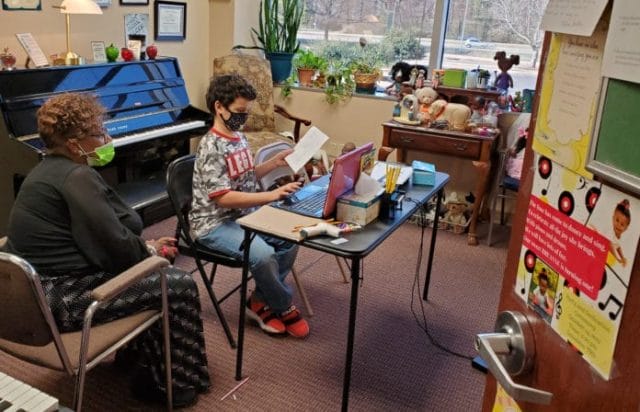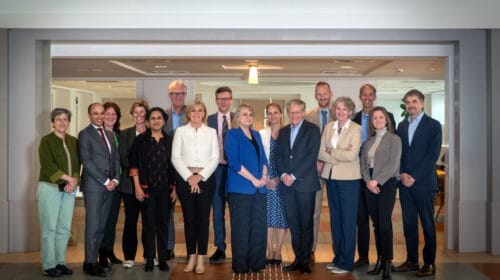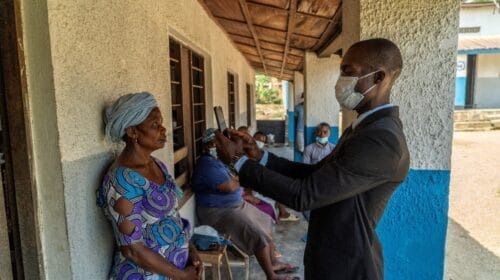CME Church crafts scholarship to extend music heritage

For years, the Christian Methodist Episcopal (CME) Church has suffered from a shortage of musicians in local churches, according to Bishop Henry Williamson, Prelate of the First Episcopal District.
“There is a great dearth of musicians who can play the hymns, anthems and spirituals, which have been such an integral part of the church’s tradition and heritage,” said Williamson.
The Solution?
The recently established Phillip Cheatham Memorial Scholarship Fund to have CME children trained in read music and to play the hymns that “have been so meaningful to the worship experience, Williamson said.
“Phillip Cheatham started playing the piano as a little boy growing up in the church,” said Williamson. “He went to Lane College, but he played for the church his whole life. Many times, Phillip played without pay because he loved the Lord, and he loved the music.”
The program’s pilot will start with 10 students, said Pastor Lutricia Gentry of Grady Chapel in Orange Mound, who Williamson assigned to facilitate the project.
“We want to see our children knowing about the hymns and how to play them,” said Gentry. “We are getting young candidates from the local CME churches to participate in the music instruction. Bishop Williamson announced that music lessons were to be given by Brenda Buford Shaw.”
Shaw has been teaching music in Memphis schools, as well as private instruction, for more than four decades.

“Over the years, I have had to play for churches that did not have a regular musician,” said Shaw. “Right now, I’m playing at Grady Chapel. I love doing the work, but it will be great to see young boys and girls being taught how to read music, not just play by ear. They will be able to play the hymns and other important music that has been a part of the church tradition.”
Williamson’s First Episcopal District is comprised of more than 80 churches in Memphis and Arkansas.
“Long after I’m gone, our boys and girls will be introduced to the hymns and anthems of our faith because thousands of dollars were given to this scholarship fund,” said Williamson. “The hymns were based on scripture, and it is important to the future of our church that our children can sing them and play them.”
The scholarship fund creates a model for Shaw’s instruction program for young CMEs that Williamson hopes other districts suffering the same musician deficits will copy.
Williamson hopes the program will inspire other “black denominations” to invest in the future of church music because, in many churches, the hymns are “all but forgotten.”
“It’s great that the church can be well-rounded in music and perform contemporary, non-traditional songs,” said Williamson. “But the hymns are the very foundation of the Christian church. The Bible requires us to sing: ‘Oh, sing praises unto the Lord.’ We must not forget. We dare not forget.”
The Christian Methodist Episcopal Church, familiarly known as the CME Church, was organized Dec. 16, 1870 in Jackson, Tennessee by 41 former slave members of the Methodist Episcopal Church, South.
Composed primarily of African Americans, the CME Church was established as a branch of Wesleyan Methodism, established in America as the Methodist Episcopal Church in 1784. However, African-American members were not treated equally. So, the CME Church was born. Initially, it was called “Colored Methodist Episcopal” Church.
Presently the church reports approximately 800,000 members in the continental United States and 14 African countries, including: Nigeria, Ghana, Liberia, Dominican Republic, and the Congo.
(For additional information on the music scholarship program, call (901) 292-3546.)




